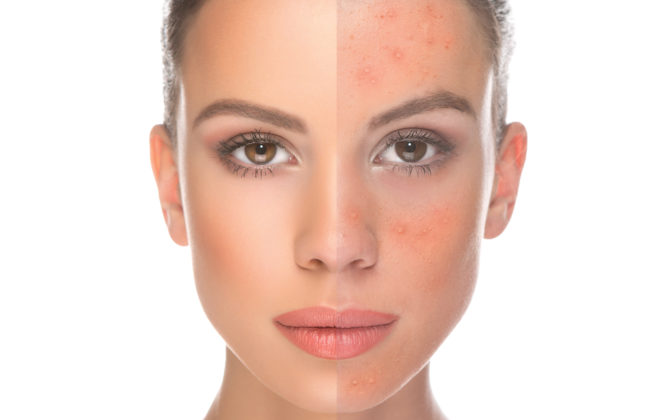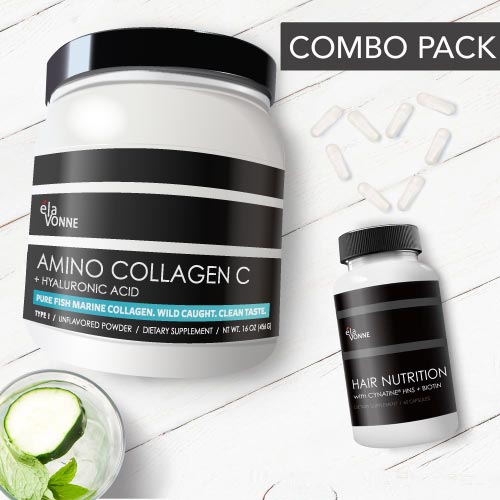Benefits of Hyaluronic Acid Supplements
Hyaluronic Acid is one of the most interesting ingredients in skin care. It comes in topical creams and serums, but also tablets and powders as well. When it is applied topically, hyaluronic acid forms an air permeable layer and penetrates into the dermis, thus boosting the elasticity and hydration of the skin. When taken as a supplement, HA is effective at boosting body collagen and increasing hydration from the inside out.
As we age our natural skin moisture level can drop in half.
Weather Protection
Hyaluronic Acid a smart nutrient, as it can adjust its moisture absorption rate based on the relative humidity in the air. It is an awesome ingredient in skin care products as it adjusts its moisturizing effect on skin based on the relative humidity of seasons and climate of an area. It also protects against ultra violet light, which would normally cause sunspots, by scavenging against free radicals.
As a Topical Application
Main Benefits of Topical Hyaluronic Acid:
- Locks in moisture to dermis
- Protects from skin damage
Hyaluronic Acid is also a major component of skin, where it is involved in tissue repair. Topically applied, hyaluronic acid forms an air permeable layer and penetrates into the dermis, thus boosting the elasticity and hydration of the skin. The protective barrier on the skin locks in moisture, which gives the skin a youthful appearance. As we age, skin moisture can drop significantly, which creates aging like effects on skin appearance as it loses its elasticity. Thus, hyaluronic can play a critical role in skin health with its unique ability to hold in moisture (a 1000 ml of water per gram of hyaluronic acid).
Hyaluronic acid creams and serums can significantly combat this decline with its unique ability to hold on to water, which is a key factor in allowing the skin to retain moisture and its elasticity.
As an Oral Supplement
Main Benefits of Hyaluronic Acid Powders and Supplements
- Improves skin suppleness
- Protects against collagen loss
- Increases and sustains skin moisture level
- Joint protection through lubrication
Hyaluronic acid can also play a critical role in the production of collagen, the most abundant protein in the body. Collagen’s main function is to sustain tendons, skin and cartilage. It provides integrity, firmness and elasticity to their structures. Maximizing collagen levels will keep skin supple.
Because of this maintaining body levels of Hyaluronic acid is not only desirable for keeping moisture levels up, but also to keep collagen synthesis up, helping to provide an anti-aging effect on skin, as it remains supple and resistant to wrinkles and fine lines.
Effectiveness of oral hyaluronic acid supplementation has been somewhat controversial. There have been studies showing hyaluronic acid to be extremely effective with oral supplementation. Theories abound on if the hyaluronic acid is actually directly affecting the outcome, or if it is an indirect effect due to higher blood levels (proven due to the supplementation), serving as the raw material for the body to draw upon to increase extracellular hyaluronic levels.
Supplementation is directly correlated to measured increases in skin moisture, microscopic skin surface analysis showing increased skin smoothness, and amelioration of wrinkles. Thus, we are now seeing some exciting new formulas, which follow the Beauty From Within philosophy; combining hyaluronic acid with fish collagen peptides to form super anti-aging products, usually in the form of powdered supplements. Elavonne offers Amino Collagen C with Hyaluronic Acid, which is a USA made premium supplement.
Based on our knowledge of Hyaluronic’s function and mechanisms (and the growing research), it looks like hyaluronic acid will remain one of the most exciting and interesting nutrients for natural skin care for the foreseeable future.
Cites and References
1. Hyaluronic acid in synovial fluid. I. Molecular parameters of hyaluronic acid in normal and arthritic human fluids EA Balazs, D Watson, IF Duff… – Arthritis & …, 1967 – Wiley Online Library
2. Sato T, Sacramento O, Danka W, Yoshida K, and Urishibata, O: Clinical Effects of dietary hyaluronic acid on dry, rough skin. J. Aesthetic Dermatology Vol. 12 109-120, 2002
3. Kajimoto O, Odanaka W, Sakamoto W, Yoshida K, Takahashi T.: Clinical Effects of Hyaluronic acid diet for dry skin. J. New Rem & Clin: 90-102, 2001.





